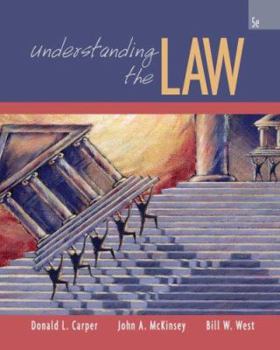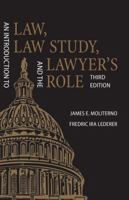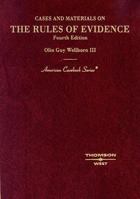Understanding the Law
Select Format
Select Condition 
Book Overview
You Might Also Enjoy
Customer Reviews
Rated 4 starsIntro to Law--textbook
I found the book very informative and the price very reasonable considering a new book costs over $120 dollars at the campus bookstore. A used book is close to $90 dollars. I definitely found a bargain here.
0Report
Rated 5 starsSatisfied customer
I am totally satisfied with my purchase. It arrived on time, and in excellent condition. The seller took the time to wrap it sufficiently so that it arrived in great condition. I will order from Fishbein Mitchell again.
0Report
Rated 4 starsClassroom keeper
This is a great overview of the five main areas of law and a number of real-life legal relationships with which we all should be familiar. It also has good case studies and assignments. A teacher's manual is available. Most of my students keep the book rather than resell it; that is high praise for this above-average-price textbook.
0Report







































![Introduction to Law for Paralegals: A Critical Thinking Approach [With Free Web Access]](https://i.thriftbooks.com/api/imagehandler/s/41AB139764E981AD706ACA64969CF5BBC6348631.jpeg)

























